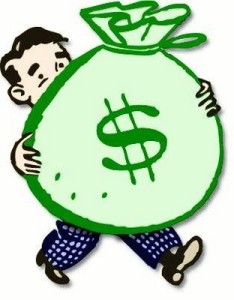Sometimes it is a wonder how easily a percentage of sales management professionals forget or never learnt the fundamentals of sales compensation and motivation.
This is not a knock against the vital and, if the job is being done correctly, difficult sales management position. However, for different reasons sales managers act counterproductively to the desired outcome when it comes time to set goals and define compensation plans.
Reasons may include:
- Sales managers forget what being in a sales (individual contributor) position was like.
- Sales manager was never in a direct sales position.
- Sales manager is junior and has not found his or her rationale or voice. This person would go with flow and not make waves.
- The sales compensation model is of course derived from the company’s strategic plan for the year and is handed down from the office of the Chief Financial Officer and, by extension, board of directors. The sales chain of command was unable to wholly or partly contribute to the puzzle.
Here are examples of what I term counterproductive sales compensation modelling. Before doing that though let us remember that we are not dealing in absolutes. This is not a black and white edict. A compensation plan could very well lie on a spectrum between ‘good’ and the ‘bad.’
Sales professionals are often vocal, and correctly so, with sales compensations when:
- The numbers are not what the company has in fact budgeted. By the time the sales manager has adds his 5%, the director had added her 10% and the vice-president has tacked on a discretionary 5% the number has ballooned by 20% and is demotivating the sales team. With the team finding the number out of reach sales people react in several ways. They check out when concluding that the target is not realistic. Worse, they become resentful believing the cards are stacked against them. Moreover, when facing a tough market and competitive landscape sales comes to fret a lack of friendly cover. You might be thinking how would the team know (that the numbers have been altered)? It is not the absolute number that poses a challenge, but the delta between numbers and the path to achieving it.
- Sales numbers are based on one-offs or special circumstances. If a salesperson who happened to walk into a large sale or had a major sale based on a special circumstance that is not repeatable finds the new quota follow the (FY -1 Special Circumstance * FY0 Uplift%) formula he is likely to balk at the number calling it irrational along the way.
- Similarly, salespersons with spectacular achievements are given congruently higher quota than counterparts based on last year’s success. The message is ‘Thou Shalt Be Punished For Thine Hard Work.’ Looked at conversely weaker salespeople were rewarded.
- Under adverse circumstances, salespeople hold back – it even has its own term ‘sand bag’ – possible sales from one quarter to the next or worse from fiscal year to the next. Forget helping salespersons over-achieve; under such circumstances sales is actively not achieving.
It is important to not create sales compensation in isolation from the very salespeople who are tasked to execute it. It is also critical that salespersons do not be handed a disincentive and be demotivated by sales management and their compensation plans. Most importantly, managers must examine the compensation plan to eliminate any perceived or actual unfairness. Operating in an environment that is not a level playing field will have the opposite of the intended effect and lead to charges of favouritism or unprofessionalism.
Keep the numbers above board, uniformly applied and view the sales team as mature allies.
*Things That Need To Go Away: not soliciting the sales team’s feedback on the sales compensation model or, worse, soliciting and subsequently ignoring it.



